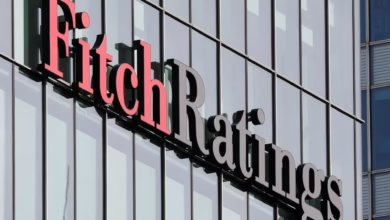
All eyes are on National Treasury Cabinet Secretary Ukur Yatani ahead of budget reading this afternoon for the 2021/2022 budget estimates in parliament.
The Ksh.3.66 trillion budget is the biggest in Kenya’s history.
It’s also the second budget to be read in the coronavirus age, a virus that brought the world to a standstill in 2020.
In the budget, recurrent expenditure is estimated at Ksh.2.09 trillion whereas the development expenditure is projected at Ksh.624.5 billion.
There are concerns that the country is likely to sink deeper into more debt as Treasury seeks to meet the 952.9 billion shillings’ deficit, against revenue collection targeted at only Ksh.1.775 trillion.
Also Read:
- MPs increase budget by Ksh.80.7 billion
- Parliament wants 2021/22 fiscal year budget reduced to Ksh.2 trillion
- A parliamentary caucus now calls for radical budget reforms
For Kenya to meet her debt obligations, about Ksh.2.6 billion will go to repaying the loans every single day in the next 2021/22 fiscal year.
Net financing across the 2021/2022 financial year is estimated at Ksh.953 billion from Ksh.930 billion last year as the exchequer steps up its reliance on borrowing to finance government spending.
The rate of borrowing is much higher in gross terms after adding Ksh.608.9 billion in scheduled debt redemption.
The executive will receive Ksh.1.8 trillion, parliament Ksh.37.7 billion and Ksh.18.05 billion to the judiciary while county governments are expected to bag Ksh.370 billion an increase from current FY’s 316.5 billion.
President Uhuru Kenyatta’s legacy majorly anchored on the Big 4 Agenda will likely fall short of the mark when the Jubilee administration ends its second term in August 2022.
In Thursday’s budget reading, Yatani is expected to include the allocation of a mere Ksh.135 billion to the President’s development agenda before his term lapses.
Under the Big 4, affordable housing will receive Ksh.14.85 billion, Universal Healthcare will get Ksh.47.7 billion, Manufacturing Ksh.18.3 billion and food security Ksh.54.2 billion.
“It is observed however that the big four agenda does not appear to have much prominence in the budget. Other than an indication that it has been allocated Ksh. 135 billion in the next financial year, there is no further discussion or how the government will ensure that at least a certain percentage of the targets are met,” reads part of the PBO report,” highlights a report by the Parliament Budget Office (PBO) on the 2021/22 budget.
The PBO cited the sluggish delivery of the affordable housing plan which has only handed over 1370 housing units represented by Ngara’s Park Road project in Nairobi out of a target of 500,000 units by next year.
And as all eyes turn to Yatani on Thursday afternoon, Regional audit and tax advisory firm PKF is warning Kenyans to brace themselves for tougher economic.
There will be an introduction of Value Added Tax (VAT) on essential goods including bread and the minimum tax that was introduced in the finance bill 2020.
PKF says Kenya’s lack of a clear tax policy will continue to discourage investors due to uncertainty in the business environment.
“To increase tax on basic commodities is the wrong thing to do at such a time. The minimum tax has been suspended by High Court for the time being and obviously has an impact to cripple both small and big businesses if not looked at,” said Michael Mburugu, Partner, PKF.





